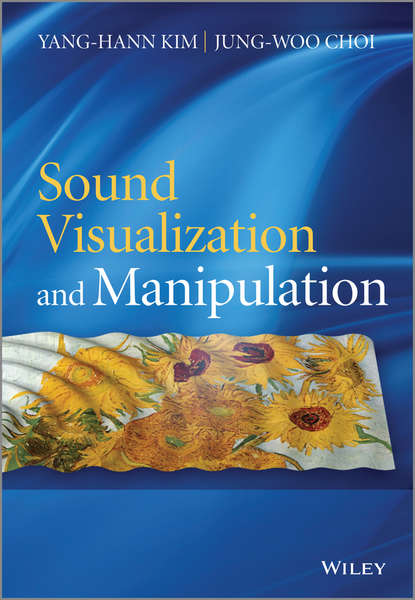
Sound Visualization and Manipulation скачать fb2
Choi Jung-Woo - Sound Visualization and Manipulation краткое содержание
Unique in addressing two different problems – sound visualization and manipulation – in a unified way Advances in signal processing technology are enabling ever more accurate visualization of existing sound fields and precisely defined sound field production. The idea of explaining both the problem of sound visualization and the problem of the manipulation of sound within one book supports this inter-related area of study. With rapid development of array technologies, it is possible to do much in terms of visualization and manipulation, among other technologies involved with the spatial distribution of sound. This book aims to explore various basic functions for the visualization and manipulation and demonstrate to the reader how these properties determine the quality of visualization and manipulation. The first half of the book introduces some basic and general concepts and theories and the second part of the book explains a number of techniques in sound visualization and manipulation. It offers a unified presentation to two very different topics – sound field visualization techniques based on microphone arrays, and techniques for generation of controlled sound fields using loudspeaker arrays. The authors emphasize the similarities between these two physical problems and between the mathematical methods used for solving them. With extensive examples throughout the book, chapters include: Acoustic Wave Equation and its Basic Physical Measures, Acoustic Wave Equation and its Basic Physical Measures, Basic Theory of Sound Visualization, Acoustic Holography, Beamforming, Basic Theory of Sound Manipulation, Sound Focusing, and Sound Field Reproduction. The first book to combine both the visualization and manipulation of sound technologies in one comprehensive volume Presents the basic concepts using simple one dimensional cases and then extends the concept to three dimensional cases, enabling easier understanding of the fundamental concepts through the use of minimum mathematics Provides a solid understanding of associated physics as well as mathematical concepts for understanding the technologies, addressing diffraction problems in an integrated format by using Kirchhoff-Helmholtz integral equation Uses extensive examples demonstrating the benefits and drawbacks of various applications, including beamforming and acoustic holography A valuable resource forpost/graduate students, acoustic engineers, audio and noise control system developers
Чтобы оставить свою оценку и/или комментарий, Вам нужно войти под своей учетной записью или зарегистрироваться



